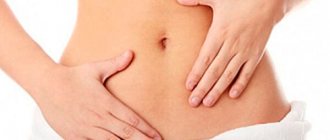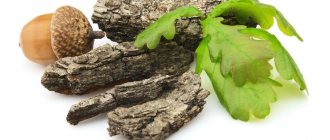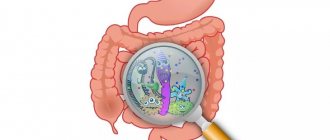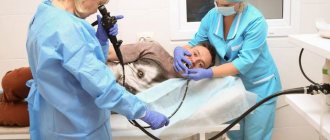Some people experience diarrhea after drinking coffee. Others believe that coffee has a strengthening effect and drink it for intestinal disorders. That is, opinions are quite ambiguous, and in order to figure out whether coffee can cause diarrhea, and whether it is possible to drink coffee if you have an upset stomach, you need to carefully study its effect on the body.
Why does coffee cause diarrhea?
There are several factors that influence the occurrence of diarrhea from coffee. Each person’s body is unique, and therefore you need to monitor your own sensations.
- Caffeine and acids irritate the stomach, stimulate the secretion of gastric juice and intestinal motility, and increase fluid secretion. Milk, which is often added to coffee, is usually not absorbed very well by adults, and it additionally fills the gaps between meals and makes the consistency liquid. As a result, incompletely digested food with a large amount of liquid passes into the intestines and puts pressure on the rectum, causing diarrhea.
- There is another explanation: when you drink a lot of strong coffee, do it on an empty stomach, or when the body is under stress, a large dose of caffeine is perceived as a toxin. The brain gives a signal to get rid of toxins, cleanse the gastrointestinal tract, which causes nausea, vomiting or diarrhea.
- Diarrhea especially often occurs from instant coffee; it is more irritating to the gastrointestinal tract and contains many chemical additives that are perceived as toxins. Diarrhea from instant coffee can be short-lived, but very rapid.
- Occasional coffee drinkers are more likely to experience diarrhea from coffee than those who drink 2-4 cups of the drink daily. Over time, the body gets used to so much caffeine, acids and toxins, and they are no longer as irritating and stimulating. True, coffee invigorates somewhat less.
- It happens that diarrhea is caused by the grounds in coffee, which greatly irritate the intestines. If you brew your coffee in a cup, French press, or coffee pot, try filters or invest in a coffee machine.
- Very hot or iced coffee can cause diarrhea because the drink stops the digestion process and simply stimulates the movement of food through the intestines. The temperature of food mixed with coffee is uncomfortable for the body, and it strives to get rid of the irritating factor as quickly as possible.
Chemical component of coffee
Despite all the warnings, coffee lovers do not stop drinking coffee if they have diarrhea. Thus exacerbating the problem. Yes, the benefits of the drink are striking, but in some situations it can be harmful. To understand how its effect on body systems occurs, it is necessary to study its components.
Coffee beans contain large amounts of caffeine. The component stimulates the nervous system, gives vigor and physical endurance to a person. Strong espresso contains a substance rich in B vitamins - nicotinic acid, which takes part in the metabolic system.
Trigonelline gives a pleasant bright smell to the drink when heated; the component belongs to the group of alkaloids. Mental activity is stimulated by tannins and microelements (magnesium, calcium, potassium).
When a person does not have health problems, even a double espresso will not harm him. The drink will enrich his body with many microelements, amino acids, proteins, and vitamins. They will improve the functioning of the metabolic system and increase metabolism.
If a patient has an exacerbation of diseases of the gastrointestinal tract (diarrhea, constipation), then coffee acts as a laxative due to its high content of microelements. They irritate the walls of the stomach and intestines and cause diarrhea after coffee.
If you have diarrhea, then drink warm tea as a drink that restores normal processes in the intestines. After all, coffee weakens the stool.
Is it possible to drink coffee if you have diarrhea?
It is believed that tannins present in coffee or tea have an astringent, fixing effect, and sometimes they try to treat diarrhea with strong coffee. But usually the drink causes the opposite effect, since the gastrointestinal tract is already irritated and working actively, and an additional dose, in fact, on an empty stomach, only worsens the condition.
In addition, the body is dehydrated, and caffeine has a diuretic effect, so it is better to drink large quantities of water rather than coffee. However, there is one exception.
Composition and effect of coffee on the body
Coffee beans have a complex composition with a large number of rare substances. There is an opinion that the beneficial components of grains are destroyed during processing. This is not entirely true. During roasting of raw materials, many substances undergo changes, but new compounds are formed. For example, new ones are formed instead of lost antioxidants.
All attempts by scientists to create a product similar to coffee in action, taste and aroma have not led to success. The drink has no analogues.
What's included:
- alkaloids: caffeine, theobromine, theophylline, trigonelline;
- more than 30 organic acids, rare: quinic, chlorogenic, caffeic;
- macroelements: potassium, magnesium, calcium, sodium,
- trace elements: iron, manganese, rubidium;
- vitamins: B1, B2, PP;
- polyphenols, glycosides, pectins, caffeol, essential oils;
- amino acids: glycine, leucine, glutamine.
The most famous effects of grains are tonic and invigorating. This is due to the effects of caffeine, which begins 15-30 minutes after drinking the drink.
Caffeine stimulates the central nervous system. As a result, the functions of the cardiovascular system, cerebral cortex and respiratory center are activated. A person feels uplifted and invigorated. Increases brain activity, memory and concentration. The effect of caffeine lasts only 25 minutes.
Afterwards the influence of theobromine begins - less pronounced. Therefore, 30-40 minutes after coffee you can feel drowsiness, some loss of strength and relaxation.
Recent studies have proven that regular consumption of coffee within normal limits is beneficial for serious illnesses. These are diabetes mellitus, Parkinson's, Alzheimer's, heart and vascular diseases, cancer pathologies of the mammary glands, liver and prostate.
Acorn coffee for diarrhea
Pharmacies sell a special drink, coffee made from acorns.
It can only be called coffee conditionally, it is only slightly similar in taste and smell, but it contains tannins in much larger quantities, and this is enough to help the intestines. You need to brew acorn coffee in a Turk, at the rate of 1 tablespoon per 100 ml of water. Doctors do not recommend using coffee to treat diarrhea. Acorn coffee is one of the acceptable auxiliary measures, but in any case, it is better to take medications on the advice of a doctor.
If diarrhea continues for several days, or bleeding occurs, stop drinking coffee altogether and call qualified medical help!
Causes of diarrhea
The causes of diarrhea may be the following:
- Poisoning from low-quality products.
- Exacerbation of gastrointestinal diseases as a result of dietary disorders.
- Infection with parasites that infect the intestines.
- Excessive consumption of foods containing sucrose.
- Bacterial lesions of the gastrointestinal tract.
With diarrhea, the gastrointestinal tract malfunctions and the absorption of fluid and microelements is disrupted. Loose stools occur when:
- Damage to the mucous membranes of the stomach and intestines. If the mucous membrane is inflamed or its integrity is compromised, then fluid is retained in the intestines. And its excess does not allow the nutritional components to be properly absorbed. Feces are formed. Compounds are formed that develop excessive osmotic activity. A high glucose content, for example, contributes to disturbances in fluid metabolic processes and dilution of chyme.
- Infections with harmful bacteria or other microorganisms. Damage to the intestinal walls by bacteria leads to flatulence; pathogenic microorganisms also accumulate on the walls and cause disturbances in the passage of feces.
- Strengthening the peristalsis of contractions of the intestinal walls. Increased peristalsis has a negative impact on food absorption. Food is not digested as it should be due to rapid movement along the inner surface of the intestines.
- Increased amount of liquid in chyme and excess microelements.
Doctors strongly do not recommend drinking coffee if you have diarrhea. The drink will not only aggravate gastrointestinal disorders, but will also worsen the general condition of the patient. The patient will experience headaches, swelling, increased blood pressure, and heart rhythm disturbances.
If diarrhea continues for a long period of time, you should not self-medicate. Contact a specialist for help.
Tea composition
The leaves of the tea bush, from which the raw materials for brewing are prepared, contain many useful chemical compounds - tannins, caffeine, vitamins of groups A, B, C, D, E, K, P, PP, amino acids, trace elements and others.
Tannins are a group of compounds that bind to the cellular proteins of microorganisms, thereby neutralizing them and protecting the mucous membrane. In addition, they have fastening properties, due to which they change the properties of intestinal contents, the passage of which slows down, it becomes denser and the manifestations of diarrhea are reduced.
Of all the vitamins available, the most important are representatives of group B. Their effect is associated with their effect on muscle tissue, including those located in the intestinal wall. This improves peristalsis and improves water absorption.
The caffeine content of tea tree leaves is higher than that found in coffee, but its effect is much milder because the compound is bound to other substances and a smaller amount of tea leaves is used for tea.
When can I take it?
It is a proven fact that drinking coffee during diarrhea is contraindicated. But there is an exception when a drink can help. This is coffee made from acorns and barley. These two remedies help with diarrhea.
These drinks can only be called coffee because of their similar taste. The effect on the body differs from the original one. They have fixing properties and have a beneficial effect on peristalsis.
Coffee made from acorns contains more than 60% starch. It coats the intestinal walls. Due to this, the load on the pancreas is reduced. Diarrhea stops.
Barley drink will help get rid of bloating, infections, parasites
Drinks made from barley and stomach contain a substance called quercetin. It helps get rid of the formation of cramps, gas, and bloating.
Product properties
The chemical composition determines the properties, that is, how drinking the drink affects the body. As you know, most people drink this drink for aesthetic satisfaction and to get a dose of vigor and energy. Is this thinking justified?
Actually, yes. The human condition is affected by caffeine that enters the body with a cup of fresh ground coffee. Caffeine stimulates increased mental and physical activity. As a result, a person feels more energetic and becomes more resilient and gains strength.
Due to the fact that the drink contains nicotinic acid, normal synthesis of B vitamins becomes possible. In addition, this substance supports metabolic processes in the body.
We recommend: What to do if you have diarrhea and belching rotten eggs? - reasons and how to get rid of it
Interestingly, the tart, specific coffee aroma released during grinding and brewing is possible thanks to a special component included in the drink. This is trigonelline. When ground grains are heated during roasting or boiling, the aroma becomes especially intense due to the activation of this substance.
Tannins have a slight strengthening effect on the body. These components are similar to those contained in black tea, and as you know, diarrhea is often relieved with the help of a black, unsweetened drink.
Microelements are necessary for every person. By drinking 2-3 cups a day, you can support your body by replenishing it with valuable components.
The amino acids included in the product increase endurance and emotional stability. That's why many people prefer to refresh themselves with a cup of aromatic coffee throughout the day.
Treatment
No specific therapy is required. In case of allergies, it is necessary to find out which component causes the reaction and completely stop using it (elimination method). In case of lactase deficiency, it is worth limiting foods with milk sugar and considering the possibility of using enzyme replacement therapy (Lactazar).
Nutrition correction
If a person discovers sensitivity to caffeine-containing drinks, he should follow the diet for several days. Excluded:
fatty, fried, smoked, spicy foods;
- excess sugar;
- baked goods, legumes, nuts, peanuts;
- products with caffeine (all drinks that contain this component, as well as chocolate bars, cookies, etc.).
During the period of acute diarrhea, preference should be given to mucous soups, lean meats, boiled rice, dried bread and biscuits. Fruits and vegetables, dairy products and packaged juices are excluded.
If you have diarrhea, drink enough fluids to prevent dehydration.
Boiled or mineral still water and herbal tea are suitable (as tolerated). After normalization of the condition, nutrition is planned in accordance with the main pathology (allergies, lactase deficiency).
Drug therapy
For mild disorders, it is not used, but if bowel movements are repeated too often and threaten dehydration, and bloating causes significant discomfort, symptomatic drugs are used:
- Sorbents with antidiarrheal effect (Smecta, Enterosgel).
- Carminatives – that is, drugs used for flatulence (Simethicone, Espumisan).
- Peristalsis inhibitors (Loperamide, Imodium).
With frequent episodes of diarrhea, rehydration solutions may be needed (Ionica, Gastrolit). They are drunk to eliminate dehydration. However, if the patient does not feel thirsty, maintains his appetite and usual diet, his skin does not become dry, there is no dizziness, or repeated vomiting, then you can do without them. At the same time, you should drink enough water and get fluids from soups and other dishes in the daily menu.
When do coffee drinks help with diarrhea?
If a person experiences diarrhea from coffee, it should be excluded from the diet. Drinks made from acorns and barley will help with diarrhea. They have a positive effect on organ peristalsis.
Barley or acorn coffee contains many microelements that have a beneficial effect on the body. Starch, found in large quantities in acorns, forms a thin film that envelops the mucous membranes of the gastrointestinal tract, which prevents irritation of the organs. Starch also protects the gastrointestinal tract from other harmful elements that contribute to the development of diarrhea.
Another useful element is present in such coffee drinks - quarcetin. It has an antispasmodic effect, relieving a person of pain and bloating in the abdomen.
If there are disturbances in the functioning of the intestines, the doctor may prescribe a special diet, which includes coffee drinks made from barley and acorns. Together with dietary products, they can stop diarrhea.
Millions of people start their day with a cup of aromatic coffee. This invigorating drink activates the brain and gives strength. However, opinions differ on whether the drink has a relaxing or strengthening effect on the intestines. Can diarrhea be caused by coffee, or can this drink be safely used for disorders to alleviate the condition? It is important to understand this issue.
Traditional recipes for stopping diarrhea
In addition to standard pharmaceutical remedies, during frequent bowel movements you can try the following remedies:
- Rice porridge and rice water. You can simply cook rice porridge and eat a few spoonfuls without anything. Make rice water correctly: add a few tablespoons of pre-soaked rice to half a liter of boiling water and cook over low heat for about 50 minutes. The cooled broth should be strained through a sieve and taken about 150 ml up to four times a day.
- Oak bark is used not only in dentistry and gynecology, but also helps with severe diarrhea. Here you can prepare infusions and decoctions.
- Hard-boiled egg yolk.
- Half a glass of oak bark is poured with a glass of boiling water and boiled over low heat for up to half an hour. Take the cooled and strained decoction, 2 tablespoons three times a day.
- Strong tea for diarrhea is the most popular folk recipe. Tea should be taken pure without additives or impurities. Pour twice as much tea leaves into a cup as you are used to and pour boiling water over it. You can drink it either cold or warm, but without sugar.
As you can see, diarrhea is simply a signal of disturbances in the body or indicates an incorrect diet on your part. Do not drink low-quality coffee, and do not overuse this drink on an empty stomach.
Contraindications to drinking the drink
If you have a negative reaction to caffeine, you must take precautions when drinking a drink that contains it.
When not to drink coffee:
- if there is an increased body temperature;
- when loose stools appear with bloody streaks, which indicate infection. The disease requires treatment with antibiotics and, in some cases, hospitalization;
- age up to 16 years;
- prolonged loose stools - 7 days or more. When substances from coffee beans enter the gastrointestinal tract, the body suffers harm, which subsequently manifests itself in chronic diarrhea;
- with irritable bowel syndrome;
- with peptic ulcer of the stomach, duodenum;
- for nervous diseases, prolonged psychological stress;
- with hypertension with periodic crises.
These factors are temporary; if they are eliminated, you can resume caffeine consumption.
Diarrhea from coffee is not a dangerous condition if it develops in the first hours after drinking the drink and lasts a short period of time. This side effect can be easily eliminated if you follow simple, useful rules for safe use.
If diarrhea recurs periodically, it must be treated with diet and sorbents. In the future, for the proper functioning of the gastrointestinal tract, it is recommended to exclude instant products from the diet and give preference to pure coffee without additives in the form of milk, cream, or sugar.
The article has been approved
by the editors
Most people do not think about the effect of the drink on the body and take it out of habit or to invigorate the body. This thinking is quite justified, since caffeine stimulates brain activity, and a person begins to feel much more alert.
Coffee also contains nicotinic acid, which is responsible for the synthesis of B vitamins and supports other metabolic processes in the body.
That's not all. Few people will say that they don’t like the aroma of freshly ground coffee. It's all about a special substance - trigoneline, which is released during the roasting of aromatic grains. Tannins have a strengthening effect on the digestive organs, so stories that a strong drink helps with diarrhea are not at all a fairy tale (the reaction of each organism is individual).
Symptoms
Diarrheal syndrome caused by the consumption of caffeine-containing drinks manifests itself moderately or violently - diarrhea is not an independent disease, but a separate symptom that can be associated with various reasons.
Abnormal bowel movements due to caffeine sensitivity
In this case, you can find out the presence of:
- long-term intolerance to the drink;
- chronic gastrointestinal diseases or irritable bowel syndrome.
Patients usually adhere to a diet that excludes fried, fatty, spicy foods - they, like coffee, almost immediately after consumption cause abdominal discomfort, nausea, bloating, heartburn and stool upset. There may be a tendency to constipation, diarrhea, or alternation of these bowel movements. Diarrhea caused by coffee is characterized by:
- The appearance of liquid feces from 2 to 6 times a day.
- Heaviness in the stomach.
- Nausea.
- Bloating, flatulence.
Usually, if the patient no longer drinks coffee, the symptoms disappear fairly quickly even without any treatment. Sometimes a person is also bothered by a headache and an unpleasant taste in the mouth.
Allergy to any components of coffee
People who develop an individual intolerance to dyes, flavors or other ingredients of the drink are often sensitive to foods: citrus fruits, nuts, chocolate, tomatoes. Most likely, in the past they have already noticed an itchy skin rash, a runny nose with profuse watery discharge, or other symptoms characteristic of allergies, and caffeine was not necessarily the trigger. However, it is also impossible to exclude sensitivity that has manifested itself for the first time.
Symptoms include:
- nausea;
- vomiting;
- cramping abdominal pain;
- flatulence;
- diarrhea.
They can occur immediately or several hours after drinking coffee. Sometimes they are combined with a rash, runny nose, cough, as well as swelling of the lips, cheeks, eyelids, and lacrimation.
Lactase deficiency
It is often mistakenly considered a “children’s” diagnosis, while many adults who consume caffeine-containing drinks also suffer from it. People who add dairy products to their cup are at risk. They contain a special carbohydrate - lactose, the breakdown of which requires the participation of a special enzyme. If it is not enough, symptoms occur:
- Diarrhea - the stool is liquid, foamy, light yellow in color with a sour odor.
- Flatulence, feeling of heaviness, colic and rumbling in the stomach.
- Nausea, sometimes vomiting.
Diarrhea appears immediately after drinking a cup of coffee (tea) with milk or after some time.











